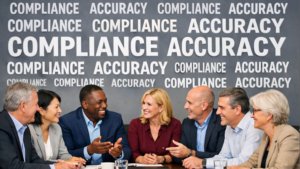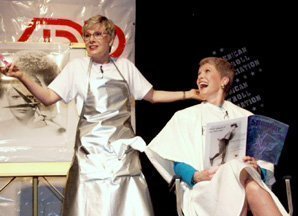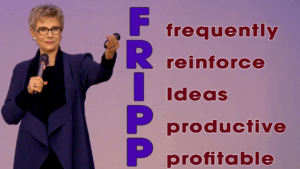Every so often, I receive an email that makes me smile before I even finish reading it.
“My good friend Brian Kehew, co-author of the book Recording the Beatles, suggested that, based on the advice you have given your brother, Robert Fripp, you may be able to help me. I am a producer who has worked extensively with the Beatles and David Bowie. Any guidance most gratefully accepted. Thank you.” Ken Scott
Well… that certainly got my attention.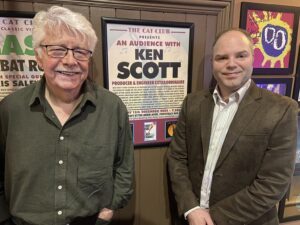
Ken Scott is one of those rare people whose career sounds like a movie script.
Except it’s real. And even more interesting than the celebrity names is what his story teaches the rest of us about opportunity, courage, and creating a career that lasts.
Because yes—his life is extraordinary.
And also, surprisingly relatable.
My Favorite First Question
Whenever I’m talking to anyone, especially someone with an unusual life, I begin with the same question. It immediately takes us past “titles and credits” and straight into the heart of the story.
“Ken… when you were a little boy, what did you want to grow up to be?”
He didn’t hesitate.
“A recording engineer.”
Then he added the detail that makes a story come alive:
“I got a tape machine at twelve and a half… and that was it for me.”
Isn’t that wonderful?
Not a vague ambition.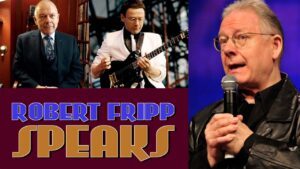
Not a wish.
A decision.
At twelve and a half, Ken heard his future.
The Career-Changing Habit: Ask
I asked him the obvious follow-up:
“How did you get into the business?”
Ken said something every ambitious professional should write down.
“I wrote a letter.”
Actually…
“I wrote ten letters.”
And one of those letters landed in exactly the right place—EMI Recording Studios.
Then he delivered a timeline so clean it sounds rehearsed… except it wasn’t. It was simply the truth:
- They received the letter on Monday
- He heard back on Tuesday
- He interviewed on Wednesday
- He got the job offer on Friday
- He started on Monday
And within a week… he left school.
He was 16 years old.
Within three months, he was working with what he called:
“The biggest band in the world.”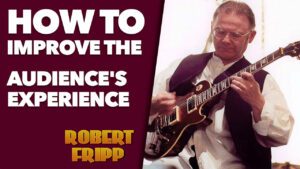
Yes. The Beatles.
That is not luck.
That is action.
The answer is “no” if you don’t ask.
“Most People Can’t Relate…” (Yes, They Can)
Ken said something honest that many successful people feel and rarely admit.
He told me, “No one is ever going to have the kind of life I’ve had. It’s almost as if everything was laid out for me.”
And he gave me a list of moments that sound like destiny:
- Abbey Road came from one letter
- The first project he engineered was Magical Mystery Tour
- The first project he co-produced was Hunky Dory
- He did one advertisement—“I’d Like to Teach the World to Sing”
- When he moved to Los Angeles, where he lived right across from Frank Zappa
Then he asked the most important question of all:
“How do I make that relatable?”
Here’s the answer:
Your audience doesn’t relate to the famous names.
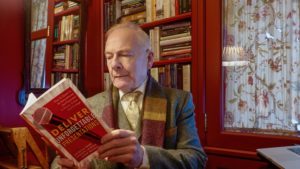
They relate to the decisions inside the story.
Because what is deeply personal… is universal.
Ken’s Wisdom, in One Sentence
I asked Ken what he learned from working with The Beatles and David Bowie that could help the rest of us. He said:
“Don’t worry about what people think of what you’re doing.”
Then he gave the deeper philosophy:
“They made records for themselves.”
Yes!
They didn’t chase approval.
They trusted their taste.
They created what they would want to hear ten years from now.
That’s a business lesson.
That’s a leadership lesson.
That’s a life lesson.
The Inner Voice (That Never Lies)
Ken then shared one of my favorite concepts…because it applies to every industry.
He said:
“Listen to that inner voice.
Open yourself up to it.
Allow it to lead you.”
He told me he followed that voice in his EMI interview.
And it got him the job.
That “inner voice” is what so many people ignore because they think it’s impractical… until they look back and realize it was their best guidance all along.
Regrets That Make You Like Him More
Then I asked him the question that always reveals character:
“If you could go back and tell that 16-year-old boy what you now know… what would you tell him?”
Ken didn’t give a stiff, polite answer.
He said: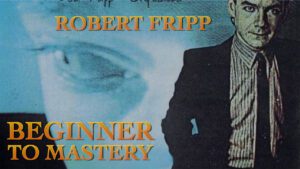
“Don’t marry my first wife.”
Naturally, I laughed—and I told him what I tell every speaker:
Pause. Let them laugh. They’re going to.
Then he gave the second answer, and it was pure wisdom:
He admitted there was a time he said yes to something for the wrong reasons. Because he thought it might lead him to a bigger opportunity.
And it didn’t.
He said the record wasn’t very good… because he let himself get led astray.
That’s a lesson every professional understands.
When your motivation is off… your results suffer.
His Real Gift Isn’t Fame. It’s Reflection.
Ken came to me asking about speaking fees for corporate engagements. As you can imagine, he has many requests and regularly speaks to audiences of all sizes.
What I really heard was someone ready to turn a remarkable life into a meaningful message.
The goal of a great talk is not to impress an audience.
It’s to connect.
It’s to help people see themselves in your story.
And Ken’s story does that beautifully.
A twelve-year-old boy with a tape machine.
A teenager bold enough to write ten letters.
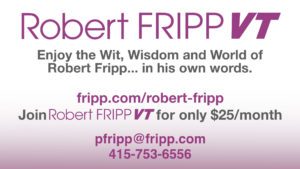
A career built on trusting his instincts.
A life guided by courage, not approval.
That’s not only a rock-and-roll story.
That’s a human story.
One Final Reminder
If Ken’s story inspires you, borrow the habit that started it all:
Ask.
Ask for the meeting.
Ask for the opportunity.
Ask for the business.
Ask for the interview.
Ask for the fee.
Because… as my Frippicism© says, “The answer is no if you don’t ask.”
And sometimes, one letter changes everything.
Mine arrived when I was 20. “When you arrive in San Francisco, come and see me. I’m not promising a job, however, I am interesting a discussing it.”
Naturally, I was hired, and my adventure in America began.
Read More...
